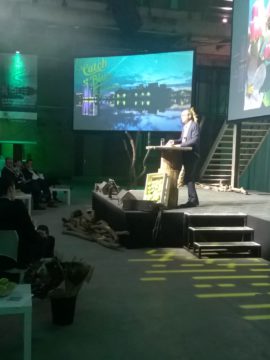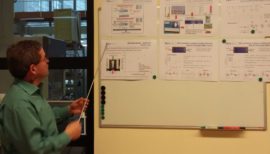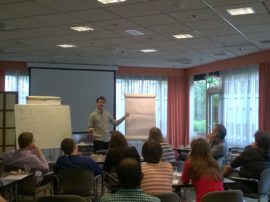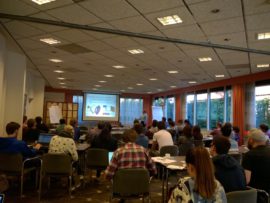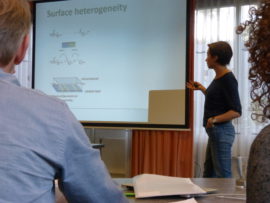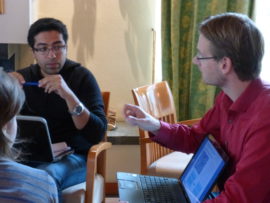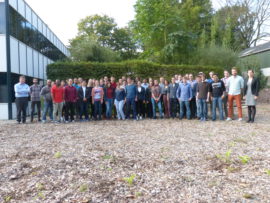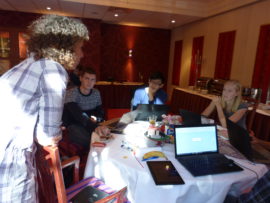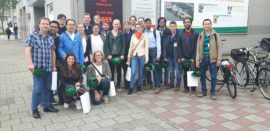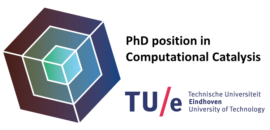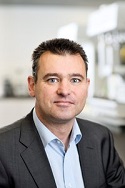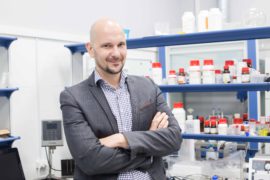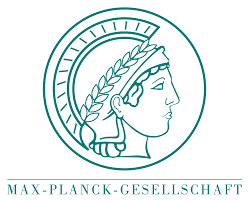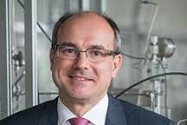On November 16th 2016, CatchBio (which stands for Catalysis for sustainable chemicals from biomass) celebrated 10 years of research in catalytic conversion of biomass into valuable building blocks. It did so with an open symposium called CatchBio Celebrates!, where some of our MCEC members were present as well.
Bert Weckhuysen (scientific director of CatchBio) opened the symposium with a view on the journey along the past 10 years: ‘Taming the recalcitrance of biomass with catalysis’. Emiel Hensen spoke about ‘Opportunities and challenges in catalytic lignin valorisation’.
CatchBio talents Evgeny Pidko and Pieter Bruijnincx talked about their CatchBio highlights in a video message that was shown during the conference.
For more information on CatchBio, their research program and upcoming events, visit their website.
